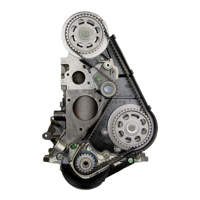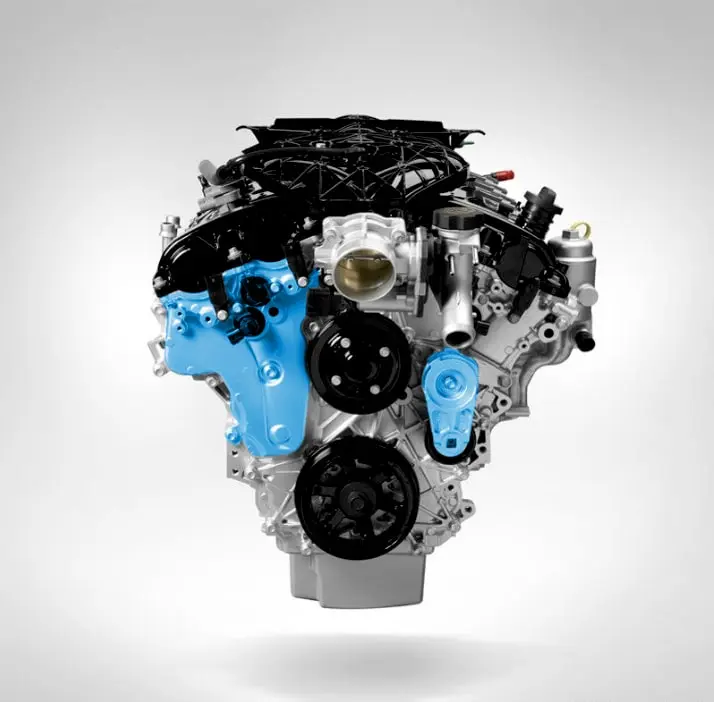Get to Know the Power and Reliability of the 2.2 Ford Ranger Engine for Any Job
Get to Know the Power and Reliability of the 2.2 Ford Ranger Engine for Any Job
Blog Article
What Makes a Cars And Truck Engine Run Smoothly: Top Tips for Optimal Treatment
The smooth procedure of an automobile engine is basic to both efficiency and longevity, making optimal treatment an essential responsibility for vehicle proprietors. What specific actions should you focus on to ensure your engine continues to be in peak problem?
Routine Oil Adjustments
One of one of the most important facets of auto maintenance is ensuring your engine obtains normal oil modifications. Engine oil lubricates interior parts, lowers rubbing, and aids preserve optimum operating temperatures. Gradually, oil breaks down because of warmth, pollutants, and the natural results of burning, leading to lowered efficiency and prospective engine damage.
Many producers recommend changing the oil every 5,000 to 7,500 miles, but this interval can differ based on driving problems and oil kind. As an example, artificial oils might enable longer periods in between modifications. Routine oil modifications not just boost engine performance yet also boost fuel efficiency, as clean oil advertises smoother operation.
Disregarding oil changes can result in sludge buildup, which impairs circulation and can bring about severe engine concerns. It is essential to inspect oil levels on a regular basis and keep track of for any uncommon changes in color or consistency, which could show contamination or destruction.

Preserving Coolant Degrees
Maintaining correct coolant degrees is essential for protecting against engine overheating and making sure optimal efficiency. The coolant, commonly a mix of water and antifreeze, flows with the engine, soaking up warm and stopping thermal tension. Not enough coolant can result in enhanced engine temperature levels, which might trigger serious damage and even complete engine failure.
To maintain ideal coolant levels, regularly check the coolant tank, normally situated in the engine bay. Ensure the coolant is loaded to the suggested mark, as suggested in your vehicle's owner manual. It is recommended to check the degrees at the very least as soon as a month or previously lengthy journeys, particularly throughout extreme climate condition.
If you observe that the coolant level is consistently reduced, there might be a leak in the air conditioning system, which need to be attended to immediately to avoid additional difficulties. 2.2 ford ranger engine. Additionally, purging the coolant system every two to three years can aid eliminate any kind of gathered particles and make sure reliable heat exchange
Monitoring Air Filters

It is suggested to check the air filter every 12,000 to 15,000 miles, or a lot more frequently if driving in dusty or unfavorable conditions. A straightforward visual evaluation can usually reveal whether the filter is filthy or damaged. It needs to be replaced promptly. if the filter you could look here shows up stained or has noticeable dirt accumulation.
Using a top notch air filter designed for your certain lorry version can even more enhance engine performance. Furthermore, some vehicles may gain from recyclable filters that can be cleaned and reinstalled, offering a environmentally friendly and cost-effective alternative.
Inspecting Flicker Plugs
Glow plugs are important parts of a lorry's ignition system, directly influencing engine efficiency and efficiency. They create the spark that stirs up the air-fuel mix in the burning chamber, assisting in the engine's power generation. Routine inspection of ignition system is essential for keeping optimum engine feature and avoiding potential problems.
Dark residue or oil deposits can suggest incorrect combustion, while a white or raw appearance might recommend overheating. Both conditions need immediate interest to protect against more engine damages.
It's a good idea to examine ignition system every 30,000 miles, or as recommended in your automobile's owner manual. Additionally, think about changing them according to the maker's guidelines, as worn or old ignition system can cause misfires, reduced fuel effectiveness, and boosted exhausts.
Tracking Tire Stress
Guaranteeing proper tire pressure is a critical facet of lorry security and efficiency. Under-inflated tires can lead to lowered fuel performance, increased tire wear, and endangered handling. Conversely, over-inflated tires can decrease grip and increase the danger of blowouts. Regular surveillance of tire stress is necessary for optimum automobile operation.
Tire content stress should be inspected at least once a month and before long journeys. Make use of a trustworthy tire stress gauge to gauge the stress when the tires are cold, ideally prior to the automobile has been driven for at least three hours. Describe the vehicle's proprietor guidebook or the placard situated on the vehicle driver's side door jamb for the maker's suggested pressure levels.
It is crucial to note that tire stress can fluctuate with adjustments in temperature level; a drop of 10 ° F can cause a 1-2 psi reduction in pressure. In addition, aesthetically check tires for any kind of indications of wear or damage throughout your monitoring regimen. Keeping correct go tire stress not only enhances vehicle security but also boosts fuel performance and extends tire life, ultimately adding to a smoother engine performance.
Final Thought
In verdict, preserving a cars and truck engine's smooth operation requires diligent attention to several vital elements. Ultimately, a positive technique to engine care is crucial for making certain dependability and functionality over time.
One of the most essential facets of vehicle maintenance is ensuring your engine gets routine oil adjustments. Engine oil lubricates inner elements, lowers rubbing, and helps maintain ideal operating temperature levels. Regular oil changes not just improve engine efficiency but also boost gas performance, as clean oil promotes smoother procedure.
Insufficient coolant can lead to boosted engine temperature levels, which may create severe damages or also total engine failing.

Report this page